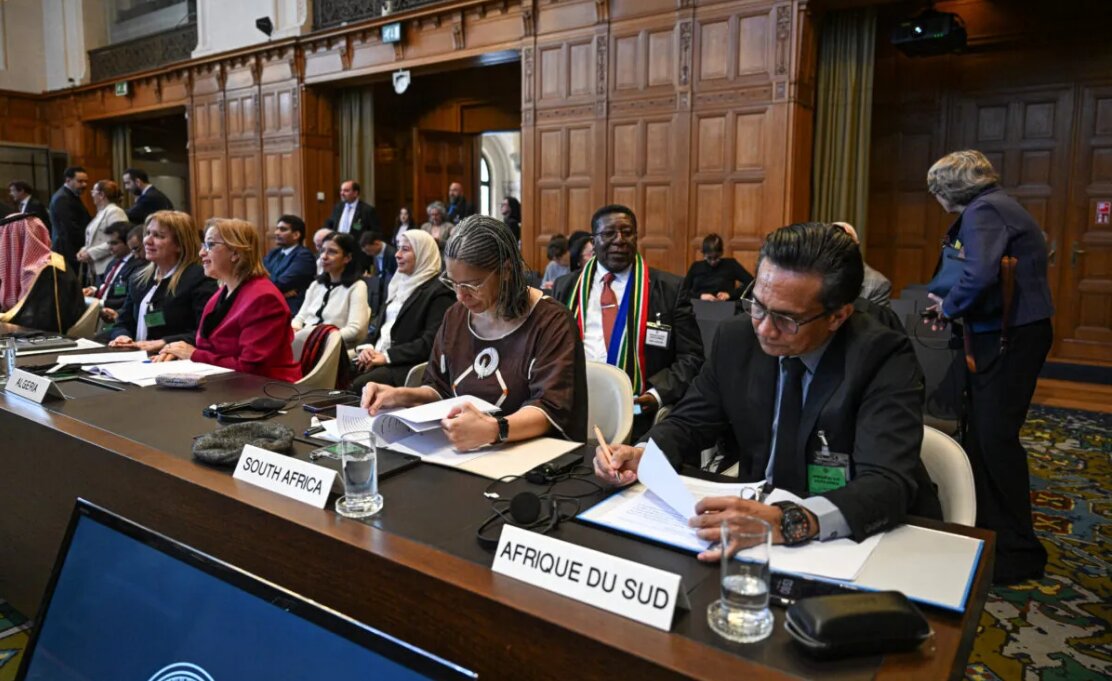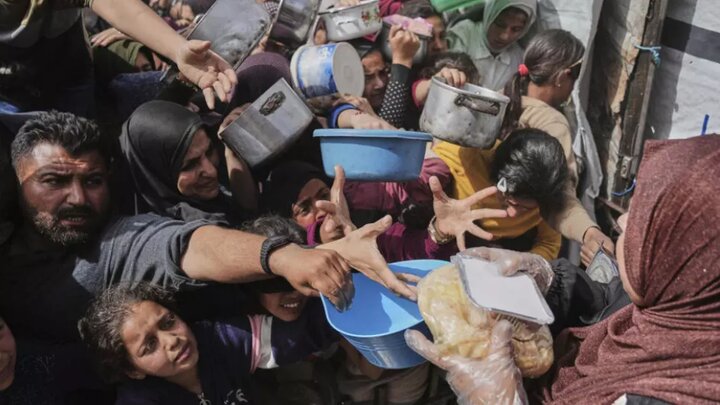Israel on trial in ICJ for Gaza aid restrictions

TEHRAN - The International Court of Justice (ICJ) proceedings in The Hague from April 28 marked a critical juncture in the longstanding humanitarian and legal challenges posed by Israel's responsibilities towards Palestinians, specifically access to humanitarian aid in Gaza and the West Bank.
These legal proceedings brought under a UN General Assembly resolution seek to establish Israel's legal obligations under international law against the backdrop of a significant blockade and worsening humanitarian situation in the occupied Palestinian territories.
Background and legal context
At the end of 2024, the ICJ was requested to render an advisory opinion on Israel’s obligations to ensure and facilitate humanitarian assistance to Palestinians.
This was particularly in relation to the UN Relief and Works Agency for Palestine Refugees in the Near East (UNRWA).
This request followed a decision by Israel in January 2025 to cut off its ties with UNRWA, accusing the agency of being infiltrated by Hamas - a charge that UNRWA denied. Since March 2, 2025, Israel has imposed a near-total blockade on Gaza, stopping all food, fuel, and medical supplies, claiming that it was for security reasons and as a means to pressure Hamas to free hostages.
The blockade has led to a humanitarian crisis in Gaza. The World Food Programme (WFP) has said that it has run out of food supplies in Gaza, exposing millions of Palestinians to starvation, and they are also not receiving crucial medical supplies. Humanitarian organizations, including Doctors Without Borders, term Gaza a “mass grave”, warning that the aid block is putting the lives of civilians at risk.
The ICJ is intervening in the matter after previous judgments, including the January 2024 order, which directed Israel to “prevent genocide in Gaza with all means”, and the June 2024 advisory opinion, which stated that Israeli control over Palestinian territories is illegal.

Israel’s boycott and international arguments
The hearings span five days, with representatives from 40 states and four international organizations, including major powers such as the U.S., China, France, Russia, and regional bodies like the Arab League and the Organization of Islamic Cooperation, presenting their arguments before a 15-judge panel.
However, Israel has boycotted the oral proceedings, submitting only written statements and labeling the hearings a “circus” and “politicized spectacle” aimed at delegitimizing it.
Israeli officials claim that UNRWA is “infested with Hamas terrorists” and accuse the UN of failing to root out militants from its ranks, citing intelligence claims that over 1,400 UNRWA employees in Gaza have militant ties, a figure unsubstantiated by independent evidence.
Palestinian representatives, notably Ammar Hijazi, head of the Palestinian mission to the Netherlands, have accused Israel of using humanitarian aid as a “weapon of war,” deliberately starving and displacing Palestinians while obstructing aid organizations.
Hijazi urged the ICJ to recognize the dire reality of “people starving” and the deliberate blockade that has left 2.3 million Gaza residents without essential supplies since March.
The UN’s legal counsel, Elinor Hammarskjöld, emphasized Israel’s obligations as an occupying power to allow and facilitate humanitarian aid and protect UN operations, warning that blocking UNRWA violates Palestinians’ inalienable rights under international law.
This is part of a series of legal analyses of Israel's actions in the occupied Palestinian territories. In a second case brought by South Africa, the ICJ has ordered provisional measures against Israel to allow the supply of essential services and humanitarian aid, invoking concerns of potential violations of the Genocide Convention.
Human Rights Watch has also said that Israel continues to block the entry of life-saving assistance to Gaza, contrary to the ICJ directives. The agency noted that, although deliveries have slightly improved, deliveries remain inadequate to meet the overwhelming needs of the population.
ICJ opinion and global aid policy
The ICJ's procedural opinion will be issued soon, and it will not be a final decision in a strict sense, but will be very influential in international law and politics. It will include whether Israel's embargo and prohibition on UNRWA are an infringement of international humanitarian law, i.e., the Fourth Geneva Convention.
Under this one, the humanitarian needs of the population under occupation are the responsibility of the government. In addition, the court is set to examine the UN Charter and customary international law, wherein Israel has a duty to make it less difficult to provide humanitarian aid.
The hearings are happening during some pretty tense times in global politics. The U.S. voted against a UN resolution that was asking for an advisory opinion, and now they're set to argue in favor of Israel. On the other hand, countries like Germany, France, and Britain are pushing for easier humanitarian access to Gaza.
Israel isn't taking part in the hearings and has been criticizing the UN and UNRWA, showing just how much distrust they have and how they see these court proceedings as part of a larger attack on their legitimacy.
For the Palestinian leadership and their international supporters, the ICJ hearings are crucial for holding Israel accountable and pushing for global action to address the humanitarian issues.
The court's opinion could shape future international laws, humanitarian aid efforts, and public opinion, possibly affecting Israel’s standing in the world and its relationships with important allies.
Leave a Comment